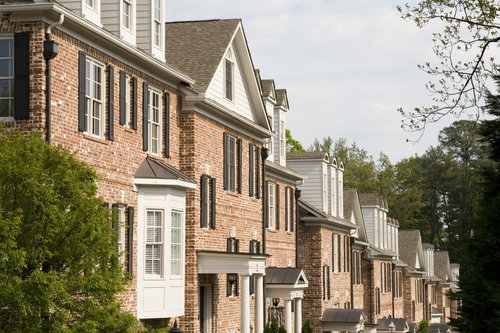Just last week, Atlanta Mayor Keisha Lance Bottoms announced that she was putting one of her central campaign promises into action. The document is a citywide affordable housing plan that invests $1 billion in public and private funds to combat rising housing costs and the displacement of longtime residents.
The four goals of the One Atlanta Housing Affordability Action Plan are to create and preserve 20,000 homes; invest $1 billion in housing preservation and production; minimize displacement; and support innovation while streamlining the development processes. The plan’s 13 initiatives and 45 other items will require dozens of pieces of legislation and Bottoms will need to marshal the resources of the city, state and federal agencies, as well as those of local businesses, developers and nonprofits.
Supporters of Bottom’s plans call it the most comprehensive housing plan of its type in the city’s history. Critics say it doesn’t offer enough details and may take too long to play out. While the plan offers many actionable items, the city has not yet prioritized a budget for affordable housing.
The push for affordable housing in Atlanta is obviously a hot topic. However, demand is not the problem; it’s lack of supply at the price points buyers can afford. As MarketNsight President John Hunt explains, “high demand for walkability and the need for more affordable options are leading many cities and developers to think outside our current housing box.” He continues, “The apartment industry has shown that today’s housing consumers are willing to pay high prices for very little square footage to stay where they want to be. The entire neighborhood around them serves as their amenity.”
But some say this dynamic has helped exacerbate affordability issues in many parts of the area, with more affluent buyers following younger renters who don’t mind packing into a house or apartment with two or more roommates.
Affordability problems in the Southeast are generally due to rents increasing at a greater pace than income, higher demand for rental housing, and the loss of low-cost subsidized and naturally occurring affordable rental housing units. According to ATTOM Data Solutions, recently released Q2 2019 U.S. Home Affordability Report, home affordability has outpaced wage growth in 40 percent of U.S. Housing Markets, including Atlanta, where 12 of the 21 counties in the report show that home prices are growing faster than wage increases.
“Despite falling mortgage rates and rising wages, the cost of owning the typical home remains out of reach for a significant financial stretch for the nation’s average wage earners,” said Todd Teta, chief product officer with ATTOM Data Solutions. “However, a closer look at the data reveals milder-than-usual increases for the Spring, and none as severe as in previous years since the recession. Therefore, this can help indicate the market may be easing.”
Mayor Bottoms adds, “rents are going up in and around our city, but the increase in wages is not keeping pace. There’s a growing gap in what people can afford and what people make.”
Will all of the housing planned for Atlanta help the real estate business? Yes, if the product is affordable.

